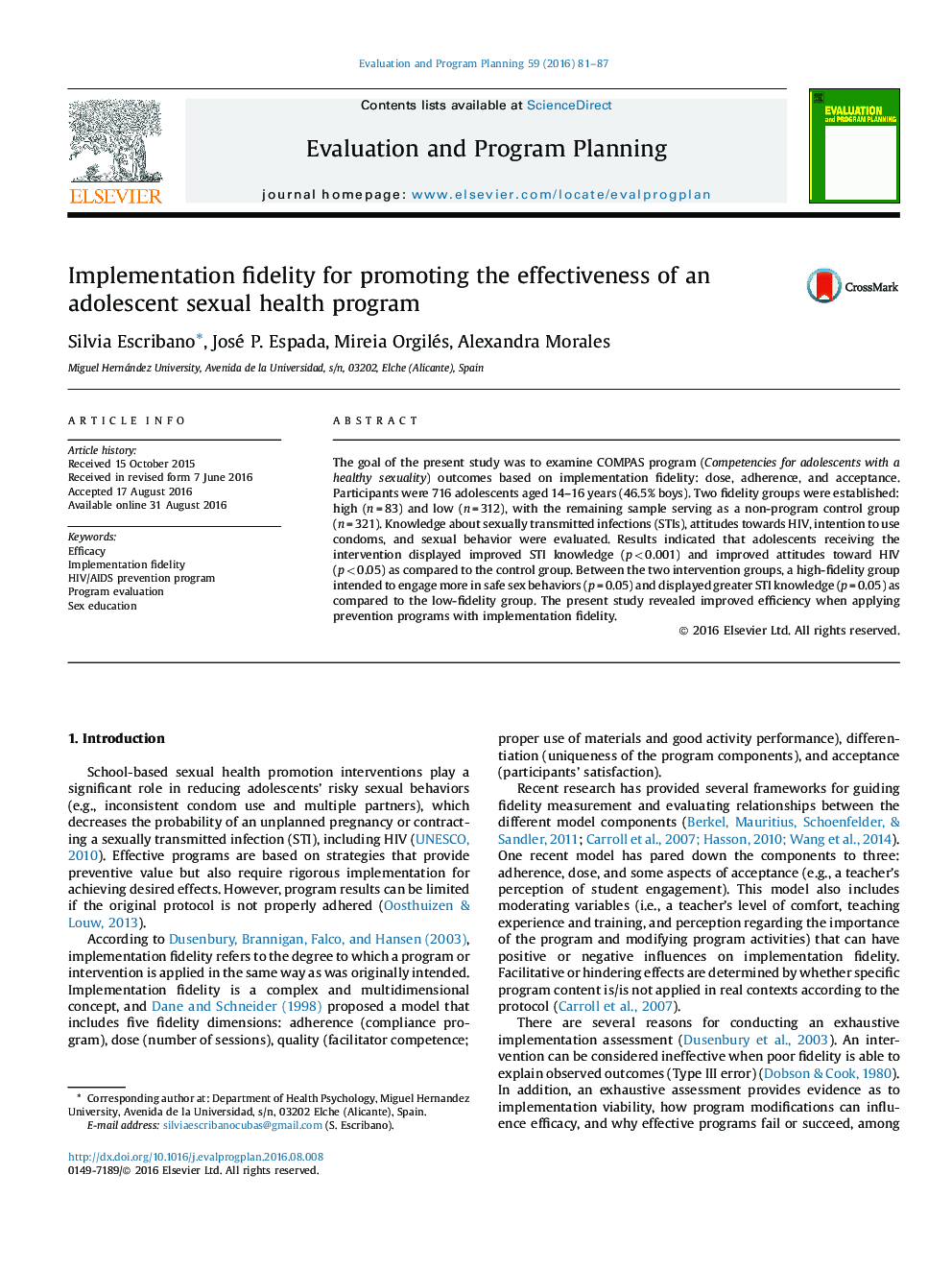| Article ID | Journal | Published Year | Pages | File Type |
|---|---|---|---|---|
| 6792482 | Evaluation and Program Planning | 2016 | 7 Pages |
Abstract
The goal of the present study was to examine COMPAS program (Competencies for adolescents with a healthy sexuality) outcomes based on implementation fidelity: dose, adherence, and acceptance. Participants were 716 adolescents aged 14-16 years (46.5% boys). Two fidelity groups were established: high (n = 83) and low (n = 312), with the remaining sample serving as a non-program control group (n = 321). Knowledge about sexually transmitted infections (STIs), attitudes towards HIV, intention to use condoms, and sexual behavior were evaluated. Results indicated that adolescents receiving the intervention displayed improved STI knowledge (p < 0.001) and improved attitudes toward HIV (p < 0.05) as compared to the control group. Between the two intervention groups, a high-fidelity group intended to engage more in safe sex behaviors (p = 0.05) and displayed greater STI knowledge (p = 0.05) as compared to the low-fidelity group. The present study revealed improved efficiency when applying prevention programs with implementation fidelity.
Related Topics
Health Sciences
Medicine and Dentistry
Public Health and Health Policy
Authors
Silvia Escribano, José P. Espada, Mireia Orgilés, Alexandra Morales,
